Confucius, in his village, looked simple and sincere, and as if hewere not able to speak.
When he was in the prince's ancestral temple, or in the court, hespoke minutely on every point, but cautiously.
When he was waiting at court, in speaking with the great officersof the lower grade, he spoke1 freely, but in a straightforward2 manner;in speaking with those of the higher grade, he did so blandly3, butprecisely.
When the ruler was present, his manner displayed respectful uneasiness;it was grave, but self-possessed.
When the prince called him to employ him in the reception of a visitor,his countenance4 appeared to change, and his legs to move forward withdifficulty.
He inclined himself to the other officers among whom he stood, movinghis left or right arm, as their position required, but keeping theskirts of his robe before and behind evenly adjusted.
He hastened forward, with his arms like the wings of a bird.
When the guest had retired5, he would report to the prince, "The visitoris not turning round any more."When he entered the palace gate, he seemed to bend his body, as ifit were not sufficient to admit him.
When he was standing6, he did not occupy the middle of the gateway;when he passed in or out, he did not tread upon the threshold.
When he was passing the vacant place of the prince, his countenanceappeared to change, and his legs to bend under him, and his wordscame as if he hardly had breath to utter them.
He ascended7 the reception hall, holding up his robe with both hishands, and his body bent8; holding in his breath also, as if he darednot breathe.
When he came out from the audience, as soon as he had descended9 onestep, he began to relax his countenance, and had a satisfied look.
When he had got the bottom of the steps, he advanced rapidly to hisplace, with his arms like wings, and on occupying it, his manner stillshowed respectful uneasiness.
When he was carrying the scepter of his ruler, he seemed to bend hisbody, as if he were not able to bear its weight. He did not hold ithigher than the position of the hands in making a bow, nor lower thantheir position in giving anything to another. His countenance seemedto change, and look apprehensive10, and he dragged his feet along asif they were held by something to the ground.
In presenting the presents with which he was charged, he wore a placidappearance.
At his private audience, he looked highly pleased.
The superior man did not use a deep purple, or a puce color, in theornaments of his dress.
Even in his undress, he did not wear anything of a red or reddishcolor.
In warm weather, he had a single garment either of coarse or finetexture, but he wore it displayed over an inner garment.
Over lamb's fur he wore a garment of black; over fawn's fur one ofwhite; and over fox's fur one of yellow.
The fur robe of his undress was long, with the right sleeve short.
He required his sleeping dress to be half as long again as his body.
When staying at home, he used thick furs of the fox or the badger11.
When he put off mourning, he wore all the appendages12 of the girdle.
His undergarment, except when it was required to be of the curtainshape, was made of silk cut narrow above and wide below.
He did not wear lamb's fur or a black cap on a visit of condolence.
On the first day of the month he put on his court robes, and presentedhimself at court.
When fasting, he thought it necessary to have his clothes brightlyclean and made of linen13 cloth.
When fasting, he thought it necessary to change his food, and alsoto change the place where he commonly sat in the apartment.
He did not dislike to have his rice finely cleaned, nor to have hismince meat cut quite small.
He did not eat rice which had been injured by heat or damp and turnedsour, nor fish or flesh which was gone. He did not eat what was discolored,or what was of a bad flavor, nor anything which was ill-cooked, orwas not in season.
He did not eat meat which was not cut properly, nor what was servedwithout its proper sauce.
Though there might be a large quantity of meat, he would not allowwhat he took to exceed the due proportion for the rice. It was onlyin wine that he laid down no limit for himself, but he did not allowhimself to be confused by it.
He did not partake of wine and dried meat bought in the market.
He was never without ginger14 when he ate. He did not eat much.
When he had been assisting at the prince's sacrifice, he did not keepthe flesh which he received overnight. The flesh of his family sacrificehe did not keep over three days. If kept over three days, people couldnot eat it.
When eating, he did not converse15. When in bed, he did not speak.
Although his food might be coarse rice and vegetable soup, he wouldoffer a little of it in sacrifice with a grave, respectful air.
If his mat was not straight, he did not sit on it.
When the villagers were drinking together, upon those who carriedstaffs going out, he also went out immediately after.
When the villagers were going through their ceremonies to drive awaypestilential influences, he put on his court robes and stood on theeastern steps.
When he was sending complimentary16 inquiries17 to any one in anotherstate, he bowed twice as he escorted the messenger away.
Chi K'ang having sent him a present of physic, he bowed and receivedit, saying, "I do not know it. I dare not taste it."The stable being burned down, when he was at court, on his returnhe said, "Has any man been hurt?" He did not ask about the horses.
When the he would adjust his mat, first taste it, and then give itaway to others. When the prince sent him a gift of undressed meat,he would have it cooked, and offer it to the spirits of his ancestors.
When the prince sent him a gift of a living animal, he would keepit alive.
When he was in attendance on the prince and joining in the entertainment,the prince only sacrificed. He first tasted everything.
When he was ill and the prince came to visit him, he had his headto the east, made his court robes be spread over him, and drew hisgirdle across them.
When the prince's order called him, without waiting for his carriageto be yoked18, he went at once.
When he entered the ancestral temple of the state, he asked abouteverything.
When any of his friends died, if he had no relations offices, he wouldsay, "I will bury him."When a friend sent him a present, though it might be a carriage andhorses, he did not bow.
The only present for which he bowed was that of the flesh of sacrifice.
In bed, he did not lie like a corpse19. At home, he did not put on anyformal deportment.
When he saw any one in a mourning dress, though it might be an acquaintance,he would change countenance; when he saw any one wearing the cap offull dress, or a blind person, though he might be in his undress,he would salute20 him in a ceremonious manner.
To any person in mourning he bowed forward to the crossbar of hiscarriage; he bowed in the same way to any one bearing the tables ofpopulation.
When he was at an entertainment where there was an abundance of provisionsset before him, he would change countenance and rise up.
On a sudden clap of thunder, or a violent wind, he would change countenance.
When he was about to mount his carriage, he would stand straight,holding the cord.
When he was in the carriage, he did not turn his head quite round,he did not talk hastily, he did not point with his hands.
Seeing the countenance, it instantly rises. It flies round, and byand by settles.
The Master said, "There is the hen-pheasant on the hill bridge. Atits season! At its season!" Tsze-lu made a motion to it. Thrice itsmelt him and then rose.
乡党篇第十
10.1 孔子于乡党,恂恂如也,似不能言者。其在宗庙朝廷,便便言,唯谨尔。
10.2 朝,与下大夫言,侃侃如也;与上大夫言,誾誾如也。君在,踧踖如也,与与如也。”
10.3 君召使摈,色勃如也,足躩如也。揖所与立,左右手,衣前后,襜如也。趋进,翼如也。宾退,必复命曰:“宾不顾矣。”
10.4 入公门,鞠躬如也,如不容。立不中门,行不履阈。过位,色勃如也,足躩如也,其言似不足者。摄齐升堂,鞠躬如也,屏气似不息者。出,降一等,逞颜色,怡怡如也。没阶,趋进,翼如也。复其位,踧踖如也。
10.5 执圭,鞠躬如也,如不胜。上如揖,下如授。勃如战色,足蹜蹜如有循。享礼,有容色。私觌,愉愉如也。
10.6 君子不以绀緅饰。红紫不以为亵服。当暑,袗絺绤,必表而出之。缁衣,羔裘;素衣,麑裘;黄衣,狐裘。亵裘长,短右袂。必有寝衣,长一身有半。狐貉之厚以居。去丧,无所不佩。非帷裳,必杀之。羔裘玄冠不以吊。吉月,必朝服而朝。
10.7 齐,必有明衣,布。齐必变食,居必迁坐。
10.8 食不厌精,脍不厌细。食饐而餲,鱼馁而肉败,不食。色恶,不食。臭恶,不食。失饪,不食。不时,不食。割不正,不食。不得其酱,不食。肉虽多,不使胜食气。惟酒无量,不及乱。沽酒市脯不食。不撤姜食,不多食。
10.9 祭于公,不宿肉。祭肉不出三日。出三日,不食之矣。
10.10 食不语,寝不言。
10.11 虽疏食菜羹,必祭,必齐如也。
10.12 席不正,不坐。
10.13 乡人饮酒,杖者出,斯出矣。
10.14 乡人傩,朝服而立于阼阶。
10.15 问人于他邦,再拜而送之。
10.16 康子馈药,拜而受之。曰:“丘未达,不敢尝。”
10.17 厩焚。子退朝,曰:“伤人乎?”不问马。
10.18 君赐食,必正席先尝之。君赐腥,必熟而荐之。君赐生,必畜之。侍食于君,君祭,先饭。
10.19 疾,君视之,东首,加朝服,拖绅。
10.20 君命召,不俟驾行矣。
10.21 入太庙,每事问。
10.22 朋友死,无所归,曰:“于我殡。”
10.23 朋友之馈,虽车马,非祭肉,不拜。
10.24 寝不尸,居不客。
10.25 见齐衰者,虽狎,必变。见冕者与瞽者,虽亵,必以貌。
凶服者式之,式负版者。有盛馔,必变色而作。迅雷风烈,必变。
10.26 升车,必正立,执绥。车中,不内顾,不疾言,不亲指。
10.27 色斯举矣,翔而后集。曰:“山梁雌雉,时哉时哉!”子路共之,三嗅而作。
1 spoke
n.(车轮的)辐条;轮辐;破坏某人的计划;阻挠某人的行动 v.讲,谈(speak的过去式);说;演说;从某种观点来说
参考例句:
They sourced the spoke nuts from our company.他们的轮辐螺帽是从我们公司获得的。
The spokes of a wheel are the bars that connect the outer ring to the centre.辐条是轮子上连接外圈与中心的条棒。
2 straightforward
adj.正直的,坦率的;易懂的,简单的
参考例句:
A straightforward talk is better than a flowery speech.巧言不如直说。
I must insist on your giving me a straightforward answer.我一定要你给我一个直截了当的回答。
3 blandly
adv.温和地,殷勤地
参考例句:
There is a class of men in Bristol monstrously prejudiced against Blandly. 布里斯托尔有那么一帮人为此恨透了布兰德利。 来自英汉文学 - 金银岛
\"Maybe you could get something in the stage line?\" he blandly suggested. “也许你能在戏剧这一行里找些事做,\"他和蔼地提议道。 来自英汉文学 - 嘉莉妹妹
4 countenance
n.脸色,面容;面部表情;vt.支持,赞同
参考例句:
At the sight of this photograph he changed his countenance.他一看见这张照片脸色就变了。
I made a fierce countenance as if I would eat him alive.我脸色恶狠狠地,仿佛要把他活生生地吞下去。
5 retired
adj.隐退的,退休的,退役的
参考例句:
The old man retired to the country for rest.这位老人下乡休息去了。
Many retired people take up gardening as a hobby.许多退休的人都以从事园艺为嗜好。
6 standing
n.持续,地位;adj.永久的,不动的,直立的,不流动的
参考例句:
After the earthquake only a few houses were left standing.地震过后只有几幢房屋还立着。
They're standing out against any change in the law.他们坚决反对对法律做任何修改。
7 ascended
v.上升,攀登( ascend的过去式和过去分词 )
参考例句:
He has ascended into heaven. 他已经升入了天堂。 来自《简明英汉词典》
The climbers slowly ascended the mountain. 爬山运动员慢慢地登上了这座山。 来自《简明英汉词典》
8 bent
n.爱好,癖好;adj.弯的;决心的,一心的
参考例句:
He was fully bent upon the project.他一心扑在这项计划上。
We bent over backward to help them.我们尽了最大努力帮助他们。
9 descended
a.为...后裔的,出身于...的
参考例句:
A mood of melancholy descended on us. 一种悲伤的情绪袭上我们的心头。
The path descended the hill in a series of zigzags. 小路呈连续的之字形顺着山坡蜿蜒而下。
10 apprehensive
adj.担心的,恐惧的,善于领会的
参考例句:
She was deeply apprehensive about her future.她对未来感到非常担心。
He was rather apprehensive of failure.他相当害怕失败。
11 badger
v.一再烦扰,一再要求,纠缠
参考例句:
Now that our debts are squared.Don't badger me with them any more.我们的债务两清了。从此以后不要再纠缠我了。
If you badger him long enough,I'm sure he'll agree.只要你天天纠缠他,我相信他会同意。
12 appendages
n.附属物( appendage的名词复数 );依附的人;附属器官;附属肢体(如臂、腿、尾等)
参考例句:
The 11th segment carries a pair of segmented appendages, the cerci. 第十一节有一对分节的附肢,即尾须。 来自辞典例句
Paired appendages, with one on each side of the body, are common in many animals. 很多动物身上有成对的附肢,一侧一个,这是很普遍的现象。 来自辞典例句
13 linen
n.亚麻布,亚麻线,亚麻制品;adj.亚麻布制的,亚麻的
参考例句:
The worker is starching the linen.这名工人正在给亚麻布上浆。
Fine linen and cotton fabrics were known as well as wool.精细的亚麻织品和棉织品像羊毛一样闻名遐迩。
14 ginger
n.姜,精力,淡赤黄色;adj.淡赤黄色的;vt.使活泼,使有生气
参考例句:
There is no ginger in the young man.这个年轻人没有精神。
Ginger shall be hot in the mouth.生姜吃到嘴里总是辣的。
15 converse
vi.谈话,谈天,闲聊;adv.相反的,相反
参考例句:
He can converse in three languages.他可以用3种语言谈话。
I wanted to appear friendly and approachable but I think I gave the converse impression.我想显得友好、平易近人些,却发觉给人的印象恰恰相反。
16 complimentary
adj.赠送的,免费的,赞美的,恭维的
参考例句:
She made some highly complimentary remarks about their school.她对他们的学校给予高度的评价。
The supermarket operates a complimentary shuttle service.这家超市提供免费购物班车。
17 inquiries
n.调查( inquiry的名词复数 );疑问;探究;打听
参考例句:
He was released on bail pending further inquiries. 他获得保释,等候进一步调查。
I have failed to reach them by postal inquiries. 我未能通过邮政查询与他们取得联系。 来自《现代汉英综合大词典》
18 yoked
结合(yoke的过去式形式)
参考例句:
The farmer yoked the oxen. 那个农夫给牛加上轭。
He was yoked to an disinclined partner. 他不得不与一位不情愿的伙伴合作。
19 corpse
n.尸体,死尸
参考例句:
What she saw was just an unfeeling corpse.她见到的只是一具全无感觉的尸体。
The corpse was preserved from decay by embalming.尸体用香料涂抹以防腐烂。
20 salute
vi.行礼,致意,问候,放礼炮;vt.向…致意,迎接,赞扬;n.招呼,敬礼,礼炮
参考例句:
Merchant ships salute each other by dipping the flag.商船互相点旗致敬。
The Japanese women salute the people with formal bows in welcome.这些日本妇女以正式的鞠躬向人们施礼以示欢迎。
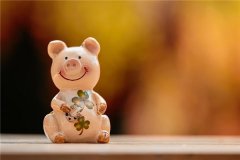
83年猪女40岁后命运开始好,40岁的猪命最好
4-29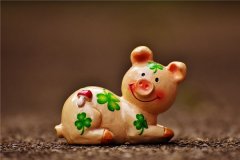
83属猪的人十年大运
4-29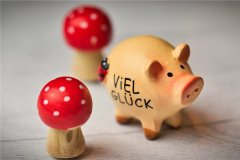
83属猪的一生婚姻外遇
4-29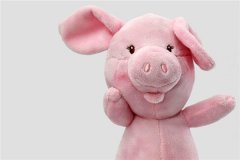
1947年的猪寿终是哪年
4-29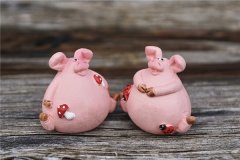
1959年属猪的是什么命,属猪人运势好不好
4-29
1971年猪十年大运预测
4-29